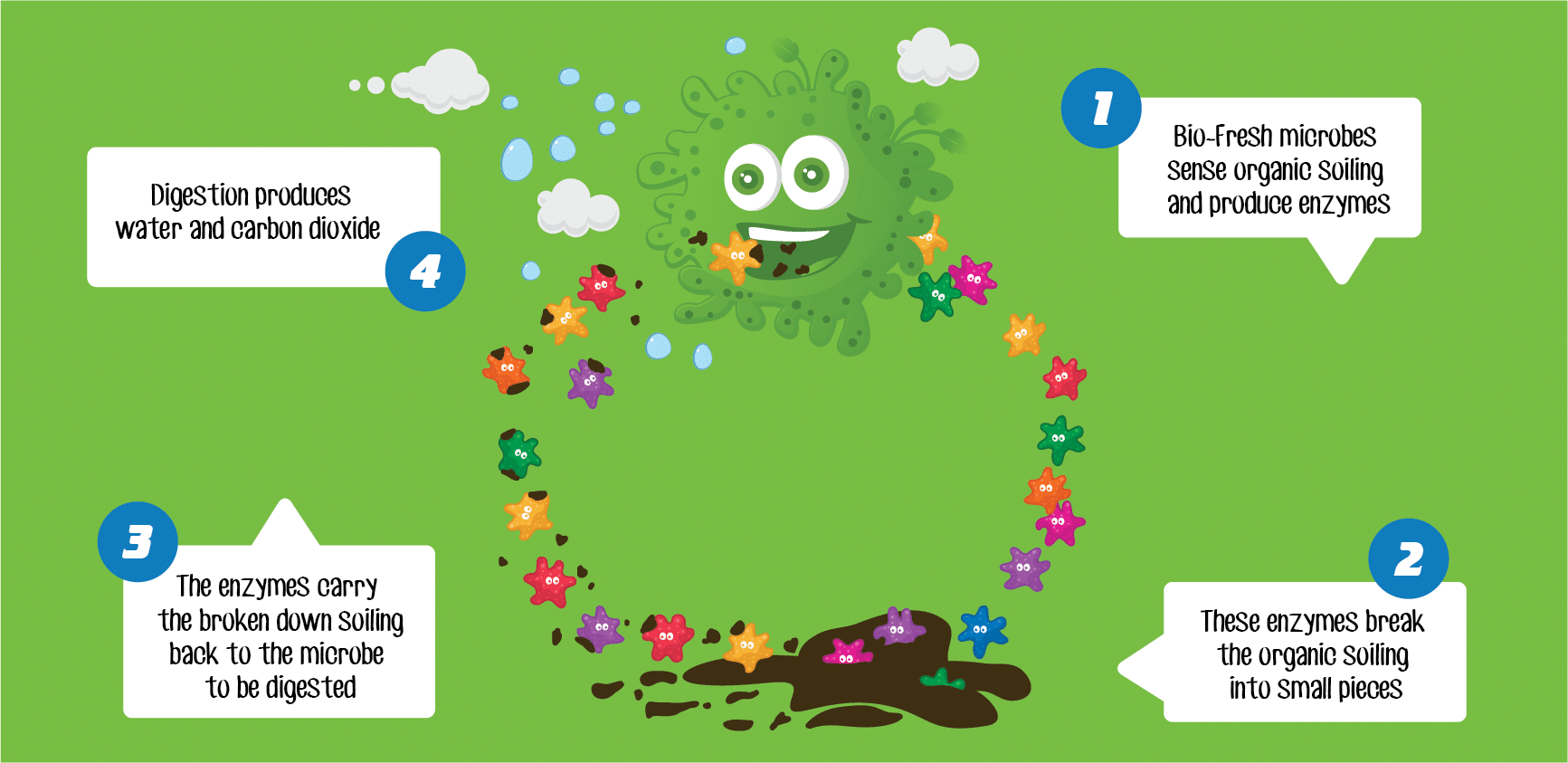Mighty Microbes
When we think bacteria or microbes, we think danger and something to avoid. However, there are certain types of bacteria that are good and can be used for cleaning. These kind of cleaning products are known as ‘bio-enzymatic’ cleaners. They include enzyme-producing non-pathogenic microbes (bacteria) and are very effective as soil and odour removers, especially when it comes to organic types of soil.
Let’s talk biology
We need to know a little about microbes to help us understand how they clean.
What are they? Microbes are microorganisms that are present in most of earth’s habitats – including soil, water, dust particles—even the human microbiome (you may have heard about gut health). There are two kinds of microbes: pathogenic (harmful) and “good” microbes, such as probiotics that help with digestion and immunity.
Live microbes produce enzymes, which break down organic waste particles into smaller pieces that microbes can easily consume. These smaller organic particles become “food” for the microbes and once digested are broken down into two basic compounds—carbon dioxide (CO2) and water (H2O).
.
Scientists estimate that only 1-10% of all bacteria have even been discovered.
How do Bio-Enzymatic cleaners work?
Biological cleaning products are live formulations using strains of safe, natural bacteria (microbes) along with specifically selected enzymes. Both bacteria and enzymes work together to clean, relying on each other to get the job done.
When applied to surfaces, soils, stains and malodorus are broken down by the enzymes, then consumed by the bacteria. As long as soil is present and surfaces are sufficiently damp, these microscopic “cleaners” multiply, continuing to remove traces of dirtand odour from surfaces hours or even days after the initial application.


